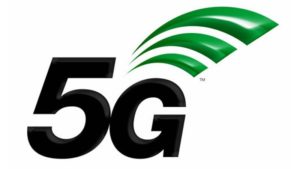Cell phones are about to get a whole lot faster. 5G, or, the fifth generation of wireless cell phone technology, is coming to us sooner than you may think. This new generation of technology is going to affect the speed of tomorrow’s phones, along with how the world is connected to the internet, in a very substantial way.
5G: the Basics

If you are not aware, most phones of today utilize 4G LTE service to connect to the internet and send and receive texts. When it came onto the scene in 2010-11, 4G brought to us much faster speeds and a higher bandwidth (the amount of data transferable on a network at one time) than before. This allowed you to be able to, for example, stream a video off of your cell phone without having to wait for it to buffer for what seemed like an eternity.
5G is going to bring your smartphones much faster speeds than they currently are seeing with a 4G LTE connection. But faster speeds are only scratching the surface of what 5G is capable of.
One of the newest perks of 5G technology is the lower latency that the technology brings. This essentially means that you are going to be seeing your phones and other devices become more responsive when transferring data, which will only make the devices faster.
Another aspect of 5G is the ability to connect a lot more devices on the same network. What this means is that your phone’s data connection shouldn’t slow down on a 5G network when you enter a crowded area, like a concert or a sporting event where a lot of phones are connected to the same tower.
Why Should We Care?
5G is going to affect a lot more than just phones. Unlike 4G LTE or any other previous generation, technology companies are talking about applying the technology to devices and services outside of cell phone coverage.
One of the biggest beneficiaries of this technology will be the emerging driverless car industry. In the far future, all driverless cars will theoretically be connected to 5G and will constantly be talking to each other and scanning their surroundings to control the flow of traffic in an almost hive-mind mentality.
This is a bit far off, I will admit, but there is another use that is sure to affect our more immediate lives if we choose to let it: the smart home. 5G-connected smart locks, thermostats, speakers, and lights are just scraping the surface. 5G will allow your devices to talk to each other at a much higher level than before. Expect to be able to control your entire home with your smartphone in the near future (if you want to, of course).
How Soon Though?
The four major U.S. carriers all have different plans for forms of 5G implementation at this point. Verizon will launch 5G as a home internet service, starting with three to five major cities by the end of this year, with more to follow soon after. AT&T will have a 5G phone service rolling out sometime in 2019, and Sprint will be doing the same, but they say it will come in late 2019. Finally, T-Mobile aims to have a 5G phone network up next year as well.
The rest is really up to the phone manufacturers. Our current phones simply don’t have the necessary antennas to pick up 5G signals, so if you want to take advantage of this new technology, expect to upgrade to a new phone in 2019 or later.
Reference article: https://www.pcmag.com/article/345387/what-is-5g



One thought on “Faster internet speeds expected with upcoming 5G technology”